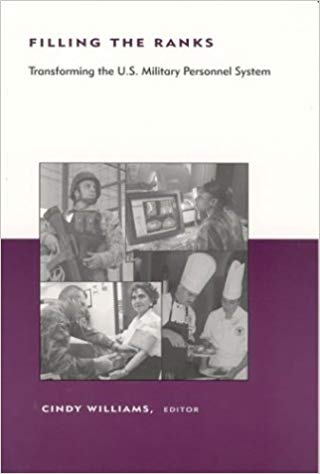Elizabeth A. Stanley. “The Military Profession and Intangible Rewards for Service,” in Filling The Ranks: Transforming the U.S. Military Personnel System, Cindy Williams, Ed. (Cambridge, MA: MIT Press, 2004), 93-118.
Abstract:
This chapter examines the military profession—the officer corps of the five armed services—as a profession, and the effects of tangible and intangible rewards for service, seated in a wider discussion of professions and compensation generally. Tangible rewards include both monetary pay and in-kind benefits, such as housing, medical care, and assistance with childcare and education. Intangible rewards include autonomy in choosing work problems, having talented colleagues, group solidarity, a shared sense of purpose, and job satisfaction. The chapter examines the military profession, concentrating on three traits that affect compensation and career patterns: jurisdictional competition, the intra-professional status hierarchy, and bureaucratization of the profession. The conclusion uses this analysis to tease out some implications for military compensation during this era of defense transformation.
